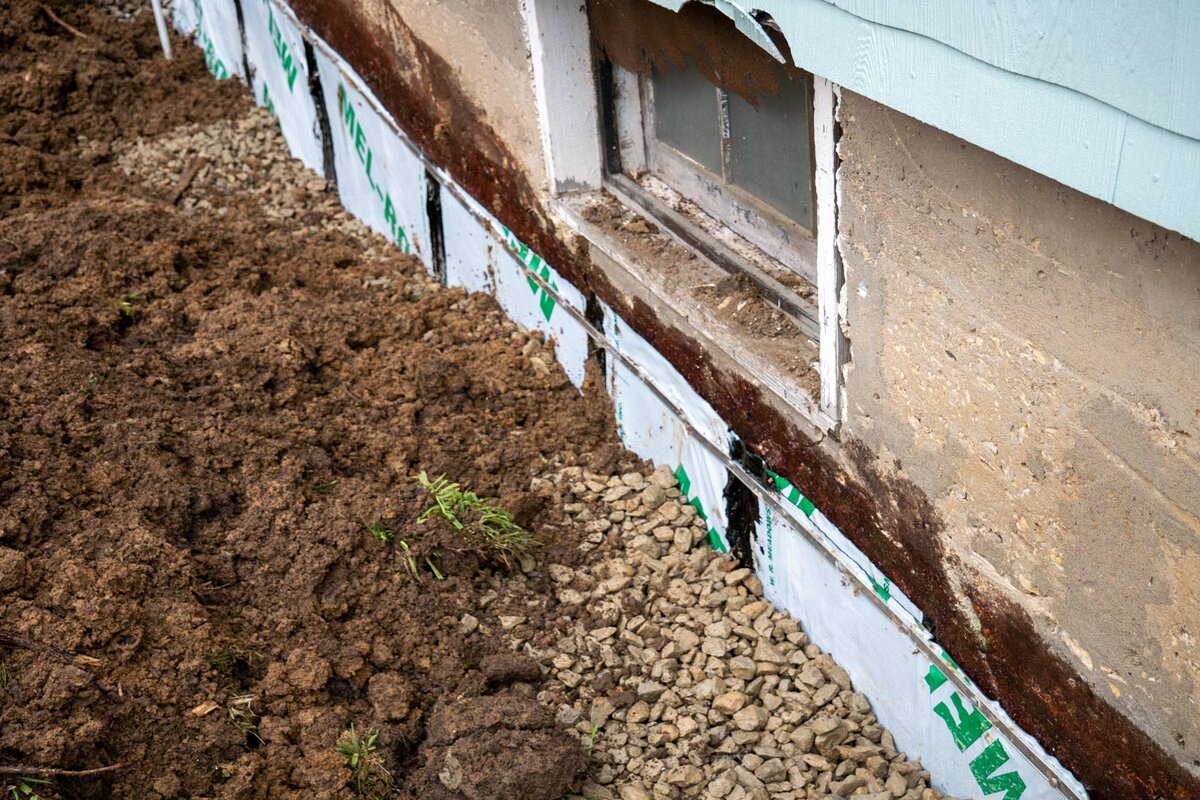Cracks in drywall, sticking doors, and uneven floors are common issues in many Kansas City homes. These problems often start with the soil beneath your foundation. Much of the area sits on clay-rich soil that changes with moisture levels. When wet, it expands. When dry, it shrinks. These shifts can lead to foundation movement over time. In this post, we’ll explain how expansive clay soils affect your home’s foundation and what steps you can take to help prevent further damage.
How Expansive Clay Soils Affect Your Home’s Foundation
Kansas City is known for having a high concentration of expansive clay soil, especially in areas like Overland Park, Olathe, and Independence. These soils contain minerals that absorb water easily—especially during rainy seasons—and then shrink back when dry weather returns. This swelling and shrinking cycle creates pressure that can wreak havoc on your home’s foundation.
Swelling and Shrinking: A Constant Tug-of-War
When expansive clay becomes saturated, it swells with moisture. This can push your foundation upward, a process known as “heaving.” In the dry months, the clay contracts, causing your foundation to settle or sink. Over time, this up-and-down movement leads to cracks in walls, uneven flooring, misaligned windows and doors, and in serious cases, structural failure.
We’ve worked on homes where foundation walls bowed inward by several inches—simply because of the stress caused by the surrounding soil. In other cases, we’ve had to stabilize homes that were settling on one side while heaving on the other. That’s how powerful Kansas City’s soil can be.
Foundation Wall Cracks and Basement Leaks
Another way expansive soils affect your foundation is by pushing against basement walls. When the soil becomes saturated, the pressure it puts on your foundation increases. This pressure—called lateral earth pressure—can cause horizontal cracks, inward bowing, or even full collapse in extreme cases.
You might notice moisture coming into your basement during or after a heavy rain. That’s often because clay soil holds water against your foundation. Once the pressure builds up, the water will find the path of least resistance—usually through wall cracks, joints, or porous concrete.
What Makes Kansas City So Vulnerable?
Kansas City sits on a large amount of clay-heavy soil known as “montmorillonite,” a type notorious for its ability to expand and contract. Combine that with our region’s shifting seasons—hot, dry summers and heavy spring rains—and you’ve got the perfect storm for foundation movement.
Even newer homes built to modern standards can fall victim to these conditions. If builders don’t account for soil expansion during construction, or if the grading around the house doesn’t drain water away properly, the foundation will eventually be affected.
Signs Your Home Might Be at Risk
You don’t need to be a contractor to spot the signs. If you notice any of the following, it may be time to have your foundation evaluated:
- Cracks in drywall, especially above windows or door frames
- Doors and windows that stick or won’t close correctly
- Uneven or sloping floors
- Gaps between walls and ceilings or baseboards
- New or widening cracks in your basement walls
- Water pooling near your home after a rain
These are all clues that expansive clay soils may be affecting your home’s foundation.
Why Choose KC Pier
At KC Pier, we specialize in solving the exact problems caused by Kansas City’s expansive soil. We’ve worked on thousands of homes across the metro area and understand how this soil behaves throughout the year. From helical piers to wall anchors, waterproofing, and grading correction, we tailor every solution to your property’s unique conditions.
Our team uses proven systems that not only stabilize your foundation but also prevent future movement. When it comes to long-term protection, you need more than a quick fix—you need a team that understands the soil and how it interacts with your foundation. That’s what we offer at KC Pier.
In Summary
Expansive clay soils affect your home’s foundation more than most homeowners realize. These changes in the soil’s volume—caused by moisture fluctuations—can lead to serious structural issues if ignored. The signs may start small, but over time they’ll grow into larger and more expensive problems.
If you’re seeing any signs of foundation movement, or if your home is built on clay-heavy soil, don’t wait to take action. Contact us today at KC Pier. We’re here to evaluate your home, provide expert solutions, and make sure your foundation stays strong for years to come.

